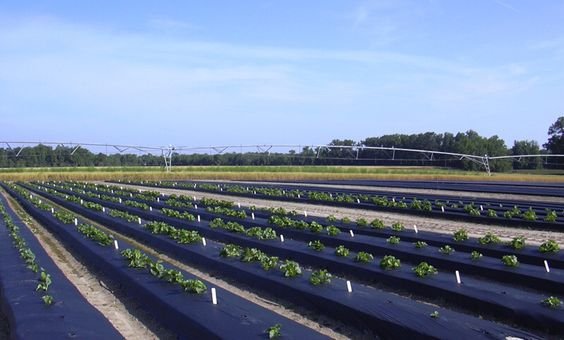Introduction
Mulch film has become an invaluable tool in agriculture and gardening, offering solutions to many common issues like weed control, moisture retention, and soil temperature regulation. For farmers and gardeners alike, understanding the purpose of mulch film and its benefits can improve crop yields, reduce labor, and promote healthier plants. This guide explains why mulch film is so essential, exploring its many uses and advantages in crop and garden care.
What is Mulch Film?
Mulch film is a thin layer of material, usually plastic or biodegradable, that is laid over the soil. It acts as a barrier and helps manage various factors in soil environments, ensuring optimal conditions for plant growth.
Benefits and Purposes of Using Mulch Film
1. Weed Control
Weeds compete with crops for water, nutrients, and sunlight, often stunting growth. By using mulch film, farmers and gardeners can significantly reduce weed growth, as it blocks sunlight from reaching the soil, making it difficult for weeds to germinate and grow. This can save time and resources spent on weeding while promoting healthier crop growth.
2. Moisture Retention
Mulch film helps to retain soil moisture by reducing evaporation. In areas with high temperatures or limited rainfall, mulch film can be a critical tool for maintaining a consistent water supply for plants. This minimizes the frequency of watering, saving both time and water resources while ensuring crops remain hydrated.
3. Soil Temperature Regulation
Mulch film can help stabilize soil temperatures, creating a more favorable environment for plant roots. Black and clear mulch films are commonly used to warm the soil during cooler months, extending the growing season in some climates. This temperature control is especially beneficial for early-season crops or regions with fluctuating temperatures.
4. Improving Crop Quality and Yield
By creating an ideal growth environment, mulch film can lead to better crop quality and yield. With reduced weeds, retained moisture, and stable soil temperatures, plants are less stressed and can focus their energy on producing fruits, flowers, and leaves. This results in healthier plants and often higher crop output.
Types of Mulch Film
1. Plastic Mulch Film
Plastic mulch is widely used in commercial agriculture due to its durability and efficiency in weed suppression and temperature control. Available in various colors (black, clear, and reflective), plastic mulch allows growers to customize their mulch for specific crops and climates.
2. Biodegradable Mulch Film
Biodegradable mulch film is an eco-friendly alternative to plastic. Made from materials that naturally decompose, it offers the same benefits as plastic mulch without requiring removal after the growing season, making it ideal for organic and sustainable farming practices.
3. Reflective Mulch Film
Reflective mulch film, often silver or white, is effective in repelling certain pests like aphids and whiteflies. It also reflects sunlight, which can keep plants cooler in warm climates and improve light distribution for better plant growth.
Real-World Applications of Mulch Film
Mulch film has applications in various agricultural sectors, from vegetable and fruit farming to flower and ornamental plant cultivation. For example:
- Tomato and Pepper Farming: Black plastic mulch is often used to warm the soil, reduce weeds, and keep fruits clean, enhancing growth and yield.
- Strawberry Cultivation: Mulch film helps protect berries from rotting by keeping them off the ground and retains the moisture necessary for these water-loving plants.
- Vineyard Management: Reflective mulch film can be used to control pests and regulate soil temperatures, improving grape quality and reducing pesticide use.
How to Use Mulch Film Effectively
- Choose the Right Type: Select the appropriate mulch film for your climate, soil type, and crop.
- Prepare the Soil: Before laying mulch, ensure the soil is weed-free, moist, and fertilized as needed.
- Install Properly: Lay the film carefully, ensuring there are no gaps where weeds can emerge. For plastic mulch, secure the edges to prevent wind damage.
Conclusion
Mulch film is an essential tool for modern farmers and gardeners, offering solutions for weed control, moisture retention, temperature regulation, and more. By understanding the purposes and types of mulch film, you can make informed choices to improve crop quality, reduce labor, and foster sustainable practices.
FAQ
What is mulch film made of?
Mulch film is typically made from polyethylene or biodegradable materials, designed to cover soil effectively.
How long does mulch film last?
Plastic mulch film can last for one growing season, while biodegradable films decompose naturally over time.
Can mulch film be reused?
Some durable plastic mulches can be reused if carefully removed, but biodegradable films are designed for one-time use.


